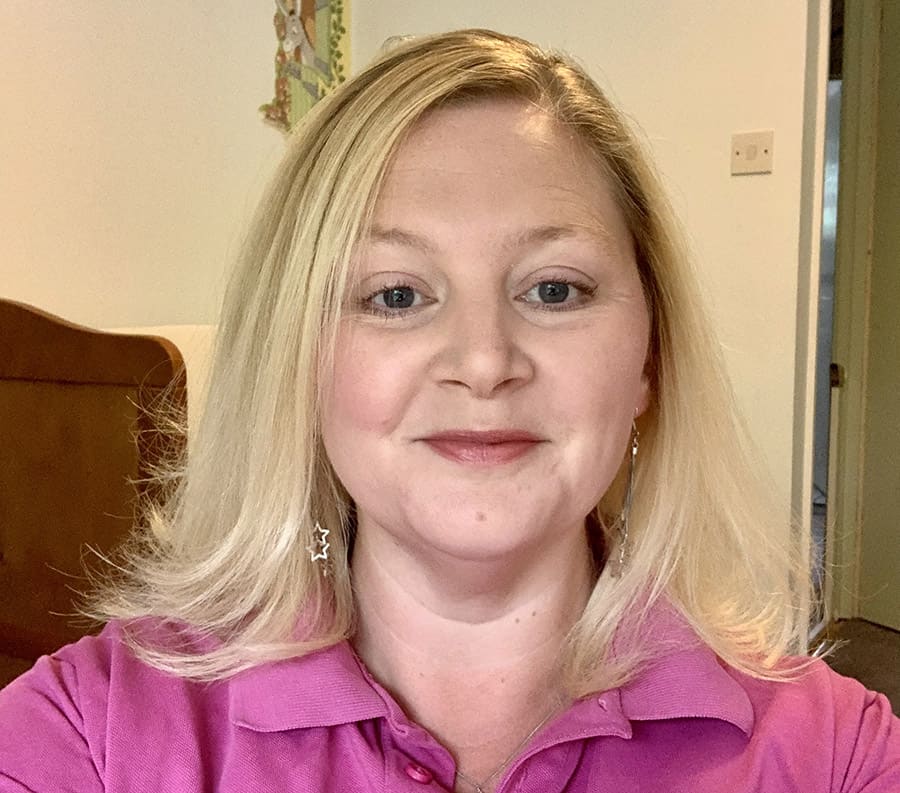EXCLUSIVE: A day in the life of a technology-enabled living innovations lead

Holly Gittings, Technology Enabled Living Innovations Lead for Herefordshire Council, discusses her assistive technology role within the council, how the local authority is managing the telecare digital switchover, and tips and tricks for getting a job in the telecare sector.
Describe your current role and previous experience
“I’m Holly Gittings, and I joined Herefordshire County Council as the Technology Enabled Living Innovations Lead 12 months ago. My role was developed to support the implementation of technology across Herefordshire as the council recognises the importance of TEC to support independence and keep people living safely at home.
“At the moment I am focusing on transitioning the existing Telecare Service from analogue to digital and we are in the process of introducing our new hybrid units to support this process. Alongside this, I am developing a new proactive and predictive technology model that will enable prolonged independence at home for users.
“Prior to joining Herefordshire County Council, I led the Gloucestershire Specialist Telecare Service, which is co-funded by Gloucestershire County Council and Gloucestershire Health and Care NHS Foundation Trust. I joined Gloucestershire in 2006, and there was no technology service then!
“My role for Gloucestershire initially was Project Coordinator for a telecare trial, funded by central government. The cost-benefit analysis we completed at that time showed such positive benefits to residents and financial payback for health and social care budgets that we were able to create the jointly funded telecare service that I managed for 15 years.
“Recognition of the benefits that technology can provide in supporting people to remain living safely and independently is increasing. The recent pandemic has helped to highlight the benefits of technology; not many people now haven’t been on a Zoom, FaceTime or Microsoft Teams call, whether that be for work or pleasure.”
Who do you work with?
“In Herefordshire, I sit within Commissioning, which allows me to work across all teams within the council identifying opportunities to deploy new and existing technologies, transforming services and service provision for the Herefordshire users. The enthusiasm for the use of technology in Herefordshire is fantastic. The developments are supported by all and there is a real opportunity for innovation.”
What do you like most about your role?
“What I love most about working in the assistive technology world is that no two days are the same. Like the technology itself, services continually evolve. There’s always an innovative project on the horizon, and I really enjoy change management.
“Currently, I am involved in the move from analogue to digital and we are just beginning to deploy our new hybrid units to support this shift. We are trialling devices and collaborating with other local authorities and the TSA (TEC Services Association) to share our learning. I am also working on several projects where new technologies are being deployed into residential care and supported living settings, as well as the introduction of a new proactive support service for the residents of Herefordshire.”
Are there any challenges that you face in your role?
“The pandemic was extremely challenging for everyone however, it did prompt services to think differently and look at new ways to provide solutions, technology being a big player in a lot of these new solutions. It takes time and investment to develop new sustainable solutions, and this is the stage we are at now in Herefordshire.
“One of the biggest challenges across the assistive technology industry is communications! Assistive technology brings so many benefits: independence to the person using it, and peace of mind to their loved ones.
“However, the demographic we tend to work with didn’t grow up with technology as the norm, so we do lots of outreach work, demonstrating how technology helps. As quite a niche service, you can sometimes find that people don’t fully understand what technology can do or the huge difference it can make for independence, reducing isolation and safety.”
How can people find out more about the Herefordshire Technology Services?
You can find out more about the Herefordshire Technology Services at www.herefordshire.gov.uk/social-care-support/care-providers-housing-options/4 and Gloucestershires Telecare Services at www.gloucestershire.gov.uk/telecare.
Tips and tricks for getting into a role within the telecare field
“I enjoy every single day, even the ‘challenging’ ones, and my advice for anyone considering a career in assistive technology is go for it. Assistive technology is becoming more and more mainstream as people realise the many benefits of supporting people to stay independent. There are huge opportunities for anyone with an interest in people, technology, project management, and innovation. One thing’s for sure – you’ll never be bored!
“If you’re interested in the telecare industry and want to start or progress your career, try the following tips and tricks:
- Follow manufacturers, companies and organisations such as the TSA on social media
- Start reading AT Today and other publications dedicated to assistive technology
- Watch webinars and look at what’s happening with the digital switch
- Use LinkedIn to help build your telecare connections
- Consider volunteering with a local third-sector organisation such as Age UK and get to see how telecare helps people with lived experience of using it
- Hone the basic business skills of project management and communications, and keep an eye out for jobs on council and health organisations’ websites”

